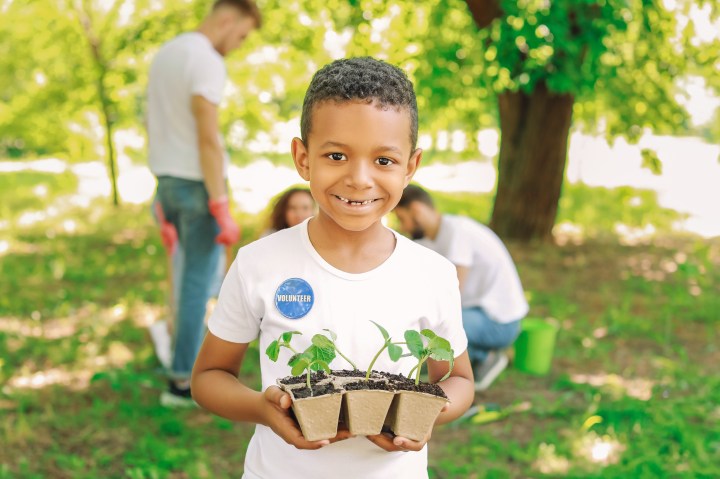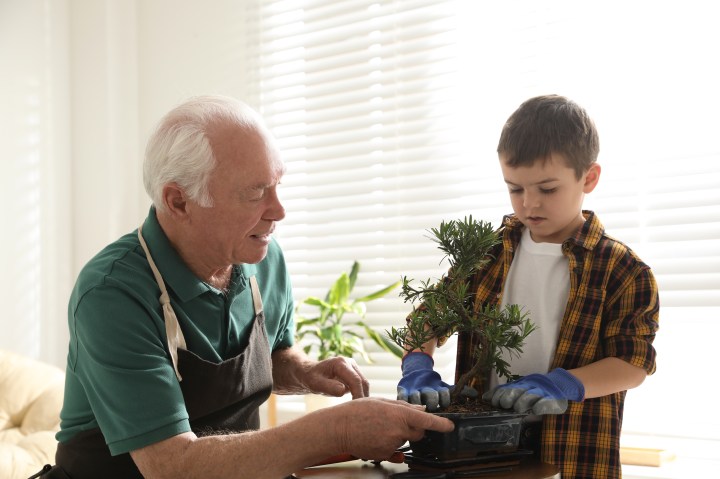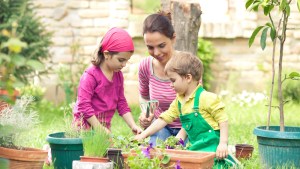Having plants in our immediate environment is good for us, and is recommended by psychologists. The fact that plants are living beings and are mostly green makes them oxygenating and inspiring.
This is important, even more so in times of pandemic. The color green, according to color psychology studies, has a positive impact on our brains. It inspires in us feelings of calm, harmony, peace, serenity, cleanliness, health, and hope.
Recommended by psychologists and doctors
Psychologists and psychiatrists say that having an environment with abundant greenery—whether outdoors in a garden or house plants—helps our mental health, for both adults and children. A study signed by researchers at the University of Aarhus in Denmark concluded in 2019 that children who are in contact with nature have a 55% lower risk of developing psychiatric diseases such as anxiety or depression, among others. Clearly, it’s not a merely subjective opinion that plants improve our physical and spiritual life.
Besides the benefits of being around plants in a passive way, actively taking care of them can also teach us important lessons about both plants and life…
1They teach us about life
If we want to take care of house plants, we need to use our heads and learn about each kind of plant’s particular needs, and what kind will work in a specific environment. For example, it’s important to take into account the amount of natural light; some plants require direct light, and therefore need to be in full sun, in front of a window or on a terrace; others need shade. We also have to take into account whether there are air currents, such as heating radiators or air conditioning, because that can affect the plant positively or negatively.
This is also true of people: We each flourish under different circumstances, and we need to be patient with ourselves and others as we strive to find our place.
2We grow in self-awareness
It’s important to know ourselves and how much time we’re willing to devote to plants. Plants teach us the humility of knowing that we’re not a genius at everything: for example, you can be a perfect manager but a disaster with the potted plant on the bookshelf. And, frankly, it’s depressing to see a half-wilted plant.
If you’re short on time, or are absent-minded, it’s best to have plants that don’t require a lot of care. For example, succulents and cacti are excellent companions, because they resist our forgetfulness and days without being watered, since they accumulate water reserves.
Tillandsias, which practically live off the air, are also useful: they don’t even need soil. They only need to feed on the humidity of the environment, and if you spray or mist them with water from time to time, that’s enough. If you don’t like watering, they’re the ideal plants.
Taking care of plants is a good reminder that we need to know ourselves and be realistic when taking on commitments.
3They make us slow down
Plants teach us that getting to know each other always requires time and, therefore, availability. Plants shouldn’t be an object of quick consumption, as if they were a disposable facial tissue—the result of an impulsive purchase or a whim. Dedicating time to plants makes us consider how important time is to care in general, even more so when it comes to caring for people.
4They help us to be more caring and considerate
Pope Francis’ “Laudato Sì” reminds to take care of our “common home,” to value creation more than before. Plants are a living element even in the most urban and technological environment: they reconnect us with God and with others. We need to check on our plants regularly if we want to detect in time any lack of water or know if they need fertilizer. This can be applied to how we deal with our co-workers, our family or our friends. Caring is paramount.

5We become more disciplined
Plants teach us that it’s important to take care of them day after day. They help us to be constant because they require more or less attention, some weekly (for example a ficus), others daily, in different ways according to the seasons. Being attentive to the plant day after day, beyond the initial enthusiasm, is a virtue that will serve us well in many aspects of life.
A recommendation: Start by marking in your daily schedule a time of the day to take care of your plants (it can be three minutes, during a break from work for example). This way you’ll get used to taking care of them and avoid unpleasant surprises.
6They foster patience
Each plant needs its own rhythm, just like people. Some grow very fast and others need years. Like the proverbial watched pot, a plant’s stems and leaves won’t grow and stretch faster, no matter how often you check on them. Give them time.
7They foster hope
If you have flowering plants, you’ll find that there are months when the plant seems to be unresponsive. My advice is that you look for information to learn which is the month of flowering in the zone where you live. You have to wait, but it’s rewarding, I assure you. That happens with geraniums, roses, daisies … if your patience is shorter and you need more daily incentives, start with anthurium, for example.
The applicability of this to life in general is almost too obvious to mention. Patience and knowing how to plan for the long term are essential to success in relationships, in business, and more.
8We become more resilient in the face of failure
If you’ve had plants and they’ve died, don’t get discouraged. Try again, following the advice in this post.
Coping with the blow without throwing in the towel is a sign of strength. Think about why the plant died and rectify your plant care techniques next time.

9They teach us the joy of sharing
Plants help us to make our house a home and create a good working climate. Working on our plants helps us share positive feelings that help everyone.
It’s not just about other people enjoying watching them grow and bloom; we can also give cuttings, make jams, bouquets … It’s a nice act of friendship and a good topic of conversation.
10They surprise us
Even the most seemingly bland plant can surprise you one day. Did you know, for example, that some cacti give beautiful flowers every year? Try one of them.
On the internet or in the plant nursery they can advise you to take one of these specimens home or to work. Life—and other people—can be full of surprises, if we pay attention.



